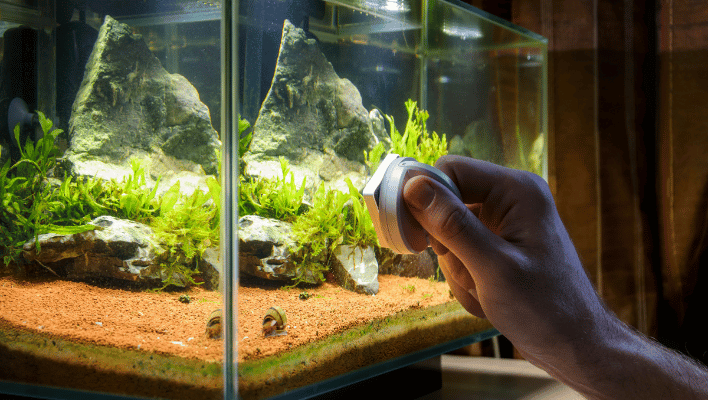Introduction
Aquariums bring the mesmerizing beauty of underwater life into our homes, offering a unique glimpse into the aquatic world. However, just like any other living environment, aquariums are not immune to diseases. Fish viral disease in aquariums can pose a serious threat to your beloved aquatic pets. In this comprehensive guide, we will delve into various aspects of fish viral diseases, offering insights and practical advice to help you maintain a healthy and vibrant aquatic ecosystem.
Table of Contents
Fish Viral Disease in Aquarium: Understanding the Basics
Fish viral diseases are caused by various types of viruses that can infect fish and other aquatic organisms. These microscopic pathogens can spread rapidly in enclosed environments like aquariums, leading to devastating consequences if not properly managed.
Symptoms of Fish Viral Disease in Aquarium
Detecting the early signs of viral infections is crucial for effective disease management. Common symptoms of fish viral disease include:
- Lethargy: Infected fish may appear sluggish or lethargic, spending more time near the water’s surface.
- Loss of Appetite: Fish that suddenly lose interest in food could be suffering from a viral infection.
- Abnormal Swimming: Erratic swimming patterns, such as spiralling or uncoordinated movements, can indicate a health issue.
- Skin Lesions: Look out for unusual sores, lesions, or discolouration on the fish’s skin.
- Respiratory Distress: Rapid gill movement or gasping at the water’s surface may signal respiratory problems.
Preventing Fish Viral Disease in Aquariums
Prevention is the key to ensuring the well-being of your aquatic pets. Follow these proactive steps to minimize the risk of fish viral diseases:
- Quarantine New Additions: Before introducing new fish to your aquarium, quarantine them in a separate tank for a few weeks to monitor their health.
- Maintain Water Quality: Regularly test and maintain water parameters, including temperature, pH levels, and ammonia levels.
- Provide Balanced Nutrition: Feed your fish a varied and nutritionally balanced diet to boost their immune systems.
- Avoid Overcrowding: Overcrowded tanks create stress and increase the likelihood of disease transmission.
- Hygiene and Cleanliness: Regularly clean and disinfect aquarium equipment and decorations to prevent disease spread.

Common Fish Viral Diseases in Aquariums
Several viral diseases can affect fish in aquariums. Some of the most notable ones include:
1. Iridovirus Infection
Iridovirus is a highly contagious virus that can affect various fish species. Infected fish may display darkened skin, bloated abdomen, and ulcerated scales.
2. Lymphocystis Disease
Lymphocystis causes the development of wart-like growths on the fish’s skin and fins. While it’s usually not fatal, it can affect the fish’s appearance and overall well-being.
3. Spring Viremia of Carp (SVC)
SVC primarily affects carp species and can lead to significant mortality rates. Symptoms include lethargy, skin haemorrhages, and a distended abdomen.
Managing Fish Viral Disease Outbreaks
In the unfortunate event of a viral disease outbreak in your aquarium, swift action is crucial:
- Isolate Infected Fish: Move infected fish to a quarantine tank to prevent further spread.
- Boost Immune Systems: Enhance fish immunity with proper nutrition, optimal water conditions, and stress reduction.
- Medication: Consult with a veterinarian experienced in fish health to determine appropriate antiviral treatments.
FAQs (Frequently Asked Questions)
Q: Can fish viral diseases spread to other pets? A: Fish viruses are generally species-specific, so the risk of transmission to other types of pets is minimal.
Q: Can I use over-the-counter medications to treat fish viral diseases?
A: Over-the-counter medications may not effectively treat viral infections. Consulting a fish health expert is recommended.
Q: How can I disinfect aquarium equipment?
A: Soak equipment in a diluted bleach solution and thoroughly rinse before reintroducing it to the aquarium.
Q: Are all viral diseases fatal for fish?
A: While some viral diseases can be fatal, not all result in death. Timely intervention improves the chances of recovery.
Q: Should I stop feeding infected fish?
A: Continue feeding infected fish to support their immune systems. Consult a veterinarian for guidance on adjusting their diet.
Q: Can I introduce new fish during a disease outbreak?
A: It’s best to postpone introducing new fish until the outbreak is fully resolved to prevent further disease spread.
Conclusion
Maintaining a thriving aquarium requires diligence and a solid understanding of fish viral diseases. By implementing preventive measures, closely monitoring your aquatic pets, and seeking professional guidance when needed, you can create a safe and healthy environment for your underwater companions.

